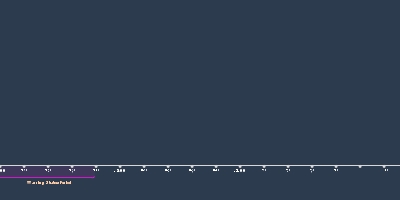1 janv. 1022 - Emperor Renzong 1022-1063
Description:
Came to power at age 12: Longest reign of Song Dynasty- Mostly ConfucianKey Points:
After an 11 year regency of Empress Dowager Liu, Emperor Renzong came into power. Generally “apathetic” towards ruling, he liked to associate with learned men and promoted education reformers country wide, focusing on the Nine Classics. {Kuhn quotes Su shi and offers the view of Emperor Renzong as a more engaged ruler who created a peaceful and prosperous reign}.
During his reign there was a major reform of the Tea monopoly, a war the Xi Xia, a major reform of government (the Qingli Reform 1043-1045) and an increase in factionalism.
I. Early Financial Issues:
• Created a heavier tax burden (during Empress Dowager Liu regency)
• Zhenzong’s “profligacy” (Feng-Shen Ritual?)
• Increase in Buddhist and Daoist clergy
• Peace Payments to Liao
II. 1033 Renzong came to Power:
• Not very interested in political affairs, left ruling mostly to councilors (Cambridge)
• Like Company of learned men
o Catalogued the four Imperial Libraries
o Sponsored significant Education Reform
80 Prefectural and 89 county schools established focusing on Nine Classics
Increased Imperial exam selection rate to 20%--> more graduates than jobs
• By 1036, an “unprecedented spread of literati culture throughout society”
III. Beginning of the Rise of Factionalism:
IV. War with Xi Xia (1038-1044):
• Xi Xia expanded (Ordos Region and Gansu Corridor) and built up a large military force
• In 1041 Song suffered the worst defeat the dynasty had seen
o Became a defensive war
• Liao Pressed for advantages to increase annual tribute
• N. Song won- Xi Xia agreed to be subjects, but showed that a small state could hold Song hostage.
V. Qingli (Ch’ing Li) Reforms (1043-1045) Cambridge pg. 316
• First major Confucian Political movement of Song
o Key People (Fu Pi, Han Qi, Fan Chung-yen, Ou-yang-Hsiu- all young)
Opponent Chief Councilor Lu I-Chein (old)
• Reasons for Reform
o Lack of effective local and regional administration
Couldn’t defend well, collect taxes effectively, or maintain law and order
Grain delivery system breaking down
War with Xi Xia, instability with Liao, famines, Epidemics and uprisings in South
o Need for good men at all levels of Government
• 10 Major Recommendations- Seven basically enacted
o Most lasting impact was focusing on Classics in Imperial Exam
o Also reforms to improve merit rating system and reduce favoritism/nepotism
• Created backlash from entrenched officials
• (“Distinguish between factions composed of virtuous like-minded men vs factions of those self- seeking to gain power”- advice given to Emperor Taizong)
• Increase in Factionalism
• By 1045 reformers had been ousted based on charges of factionalism, trumped up charges etc….
• 1045-1067 Court more stable
o Increasing allowance of criticism
o taxes increasing paid in cash and derived from commerce
Emperor Renzong died in 1063 of illness.
Ajouté au bande de temps:
Date:
1 janv. 1022
Maintenaint
~ Il y a 1004 ans
